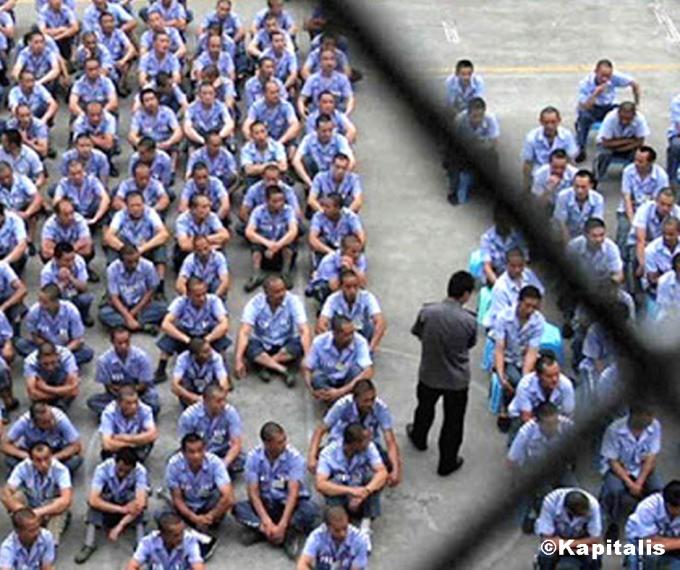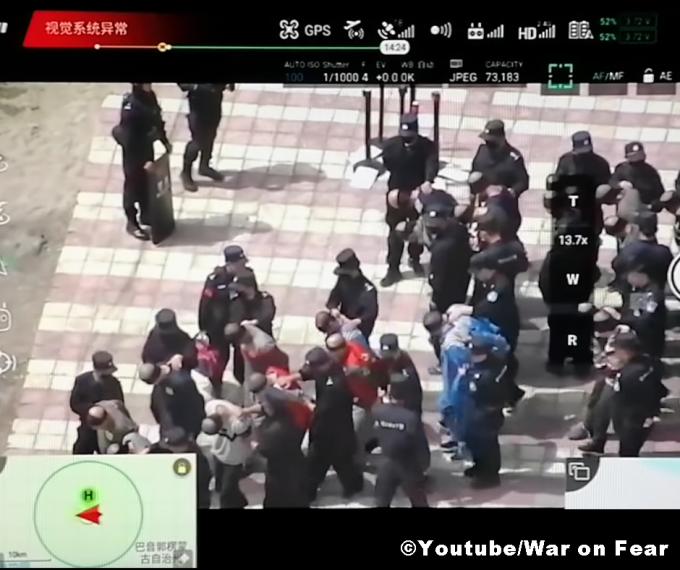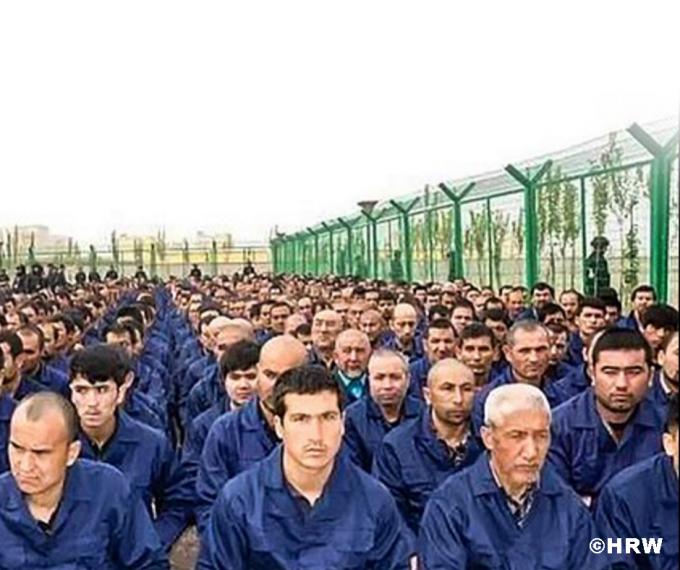OPEN LETTER ON THE WORRYING SITUATION OF THE UIGHUR MINORITY
Wednesday 3 February 2021
The support of disadvantaged populations and the respect of human dignity are at the heart of the work of Caritas Luxembourg, both in Luxembourg and internationally. As working conditions, in particular the various forms of forced labour and the exploitation of vulnerable people, are key issues of international cooperation, we are very concerned about the abuses committed against the Uighur minority living in Western China.
According to research by the Australian Strategic Policy Institute (ASPI), 82 brands1 in the automotive, computer, textile and e-commerce sectors benefit directly or indirectly from the forced labour and exploitation of the Uighur people. Several of these brands are present in Luxembourg, where products resulting from forced labour are imported and sold.
In the region of Xinjiang, the Chinese government is reportedly committing serious human rights violations against Uighurs, the Turkish-speaking muslim minority that has been living in Central Asia for over a millennium. These abuses consist of the arbitrary detention of at least 1 million people in "re-education" camps2 , targeted assassinations, forced sterilisations3 and the organised and systematic transfer of Uighurs to other regions of China where they are said to work in factories under conditions that are believed to constitute forced labour4. UN human rights experts have expressed concern that "these 'centres', due to their coercive nature, constitute detention centres "5 and have noted the "increase in arbitrary detention practices, enforced disappearances, lack of judicial control and procedural guarantees and restrictions of ... [fundamental freedoms] in an increasingly secure environment, especially for designated minorities, including Uighurs ... "6. In 2020, reports revealed that Uighur forced labour has been extended beyond Xinjiang, with at least 80,000 Uighurs transferred to factories across China where they are held under constant surveillance and must undergo "ideological training" to deny their religion and culture.7
In December 2020, the US banned the import of cotton and tomatoes from the Xinjiang region8. In January 2021, Foreign Secretary Dominic Raab stated that the UK had a "moral duty" to take steps to ban imports and exports related to Uighur forced labour. The time has come for Luxembourg, a candidate for the UN Human Rights Council for 2022-2024, to take a stand on human rights violations. In view of the commitments made in Luxembourg's National Action Plan for the Implementation of the UN Guidelines on Business and Human Rights, the question arises as to whether the continued import of products derived from forced labour would not represent an inconsistency with these commitments. Citizens have the right to know whether they are purchasing products resulting from forced labour and any other practice that undermines human dignity. It is time for Luxembourg to follow its words with deeds.
--------
1 Vicky Xiuzhong Xu, Danielle Cave, James Leibold, Kelsey Munro and Nathan Ruser, "Uyghurs for Sale: 'Reeducation', forced labour and surveillance beyond Xinjiang", Australian Strategic Policy Institute, 1 March 2020, https://www.aspi.org.au/report/uyghurs-sale
2 Adrian Zenz, z, "Wash Brains, Cleanse Hearts": Evidence from Chinese government documents on the nature and extent of Xinjiang's extrajudicial internment campaign. Journal of Political Risk, 7(11), November 2019, http://www.jpolrisk.com/wash-brains-cleanse-hearts/.
3 Adrian Zenz, "Sterilizations, IUDs, and Mandatory Birth Control: The CCP's Campaign to Suppress Uyghur Birthrates in Xinjiang", June 2020, https://jamestown.org/wp-content/uploads/2020/06/Zenz-Sterilizations-IUD .
4 Vicky Xiuzhong Xu, Danielle Cave, James Leibold, Kelsey Munro and Nathan Ruser, "Uyghurs for Sale: 'Reeducation', forced labour and surveillance beyond Xinjiang", Australian Strategic Policy Institute, 1 March 2020, https://www.aspi.org.au/report/uyghurs-sale...
5 Statement by UN Special Rapporteurs and Working Groups, 12 November 2018, https://spcommreports.ohchr.org/TMResultsBase/DownLoadPublicCommunicatio .
6 Statement by UN Special Rapporteurs and Working Groups, 1 November 2019, https://spcommreports.ohchr.org/TMResultsBase/DownLoadPublicCommunicatio...
7 Vicky Xiuzhong Xu, Danielle Cave, James Leibold, Kelsey Munro and Nathan Ruser, "Uyghurs for Sale: 'Reeducation', forced labour and surveillance beyond Xinjiang", Australian Strategic Policy Institute, 1 March 2020, https://www.aspi.org.au/report/uyghurs-sale.
8 Reuters "US bans imports of all cotton, tomato products from China's Xinjiang region", 13 January 2021, https://www.reuters.com/article/us-usa-trade-china-xinjiang-idUSKBN29I2KO
For more information, please contact Michelle Schmit, Political Work Officer, tel: 40 21 31 - 517
Donate
Your donation is essential to ensure the continuity of Caritas Luxembourg's actions in the service of the poor.
Other donation methods



